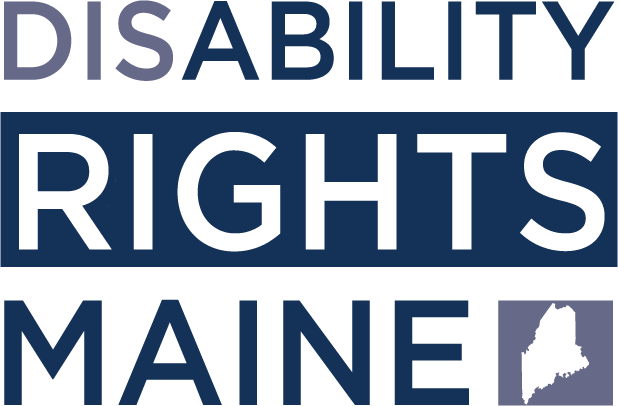Hospital-Based Advocates Continue Supporting People with Disabilities During the Pandemic
Disability Rights Maine’s four hospital-based advocates have a unique role among DRM staff. We get to meet with patients of Maine’s largest psychiatric hospitals and find ways to protect their rights as recipients of mental health services. There are DRM offices inside Riverview Psychiatric Center, Dorothea Dix Psychiatric Center, and the Acadia Hospital staffed with advocates who are available to assist clients working to resolve rights issues, advocate for better policies, and make heard the voices of consumers and their expressed interests. And for those hospitals where DRM does not currently have embedded advocates, patients can still meet with a DRM attorney who makes regular visits to places like Spring Harbor, Mid Coast and Penn Bay hospitals, among others.
In short, we work in the hospitals but for the patients, and together we work directly with hundreds of people with disabilities each year. We deal with issues including allegations of abuse and neglect, treatment in the least restrictive environment, due process, regaining rights after guardianship, informed consent to treatment and much more. DRM advocates can be invited by patients to participate in treatment team meetings, help with writing grievances or other complaints, make requests for reasonable accommodations and coordinate disparate components of community mental health services to remove barriers to discharge. Additionally, we are involved with systemic advocacy and meet often with hospital administrators to discuss policies and practices which affect all patients.
While there are disability rights advocates all over the country, The Pine Tree State is unique in that we have advocates based inside of the hospital, where access to patients and decision-makers is immediate. DRM’s mental health advocates are neither hospital staff nor visitors. We are embedded here by agreement and have access to all treatment areas of the hospital and all patients. We primarily work to answer questions and resolve concerns about the rights of recipients of mental health services, both inside and outside of these hospitals. That’s right—former patients can still receive assistance from hospital-based advocates even after they return to their communities, as we recognize that one’s advocacy needs are not limited to the duration of their hospitalization.
While the COVID-19 pandemic over the last two years substantially impacted how hospitals operate, the DRM advocates remain a constant presence in these places. Working from home is not a good substitute when one’s role involves monitoring the conditions for patients on the inside. Therefore, the advocates have stayed in the building as essential workers, utilizing PPE and carefully following infection control protocols to better ensure a safe environment for those who didn’t choose this environment.
If yourself or someone who you know would like to talk to an advocate about rights protection and advocacy, don’t hesitate to ask for the patient advocate. We’re closer than you may think.
